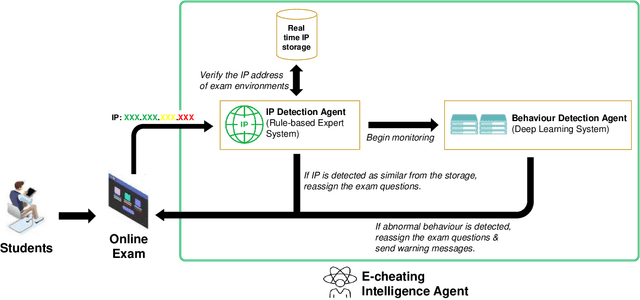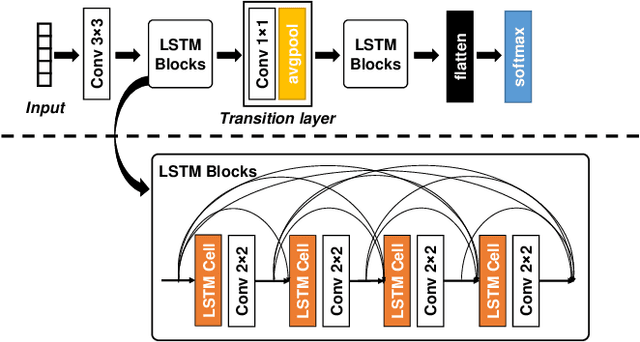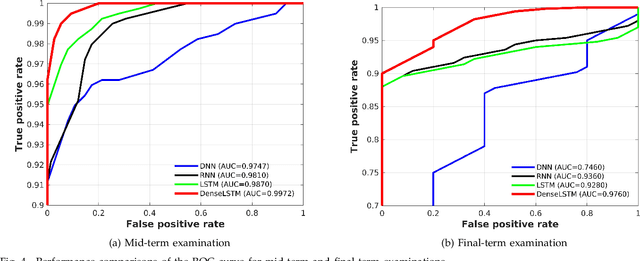E-cheating Prevention Measures: Detection of Cheating at Online Examinations Using Deep Learning Approach -- A Case Study
Paper and Code
Jan 25, 2021



This study addresses the current issues in online assessments, which are particularly relevant during the Covid-19 pandemic. Our focus is on academic dishonesty associated with online assessments. We investigated the prevalence of potential e-cheating using a case study and propose preventive measures that could be implemented. We have utilised an e-cheating intelligence agent as a mechanism for detecting the practices of online cheating, which is composed of two major modules: the internet protocol (IP) detector and the behaviour detector. The intelligence agent monitors the behaviour of the students and has the ability to prevent and detect any malicious practices. It can be used to assign randomised multiple-choice questions in a course examination and be integrated with online learning programs to monitor the behaviour of the students. The proposed method was tested on various data sets confirming its effectiveness. The results revealed accuracies of 68% for the deep neural network (DNN); 92% for the long-short term memory (LSTM); 95% for the DenseLSTM; and, 86% for the recurrent neural network (RNN).
 Add to Chrome
Add to Chrome Add to Firefox
Add to Firefox Add to Edge
Add to Edge